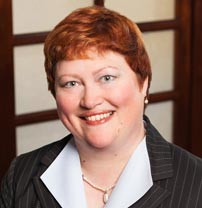June 27, 2013

Employee benefits attorney Rebecca Sczepanski spoke with WJCL reporter Rob Macko on the DOMA decision handed down by the Supreme Court. The full text from her interview is below:
SAVANNAH, Ga. – Rebecca Sczepanski, an employee benefits attorney from HunterMaclean in Downtown Savannah, stopped by the WJCL/WTGS studios to talk about Wednesday’s Supreme Court rulings regarding the Defense of Marriage Act and California Proposition 8.
The most important piece of the Defense of Marriage Act, which is DOMA, is immediately going to be in tax and pension and health care areas,” Sczepanski said. “Basically if you have a legal marriage in another state, then Georgia and all the other states are going to have to recognize that for purposes of federal tax laws. So legally same-sex spouses will now be able to go back and get married filing jointly rates. If you have state tax implications and one spouse dies, the other one will be able to get the entire amount of the estate without having to pay any federal estate tax.”
“For Prop 8 it was much more of a regulatory issue,” Sczepanski explained. “It was more – you don’t have the right to challenge the state court’s decision that these were permissible. So really the big news on this is in DOMA and the impacts that it’s going to have.”
Sczepanski agreed the Supreme Court is leaving everything up to the states, without taking a stand that the federal government approves or disapproves of gay marriage.
“That is precisely what has happened,” she said. “This decision acknowledges that this is a state’s rights issue. And that each state now has the ability, as it has always had, to determine for itself what constitutes a legal marriage. However, because the U.S. Constitution has a full faith and credit clause one state that says it’s a legal marriage, all the other states then will have to recognize that and give credit to that in the same way that a drivers license in Georgia is recognized in Indiana.”




